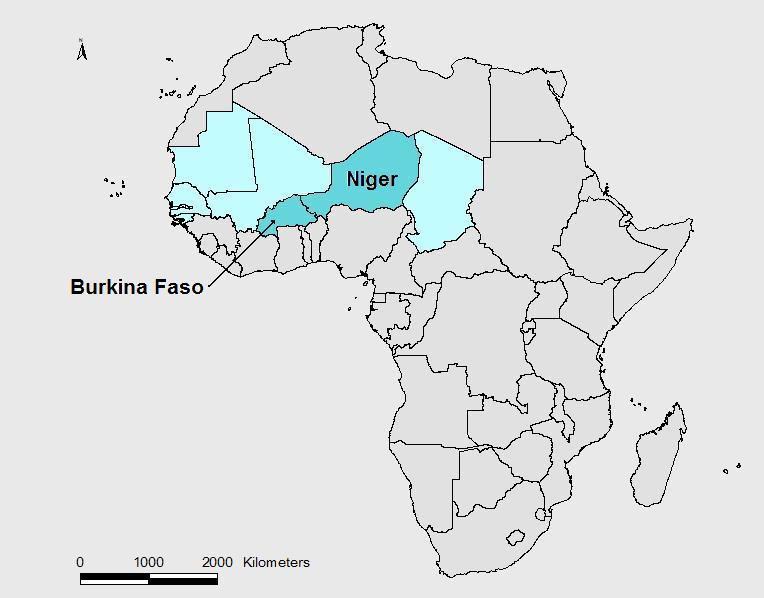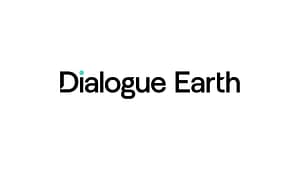This project aims to improve the performance and productivity of selected irrigation schemes in two West African countries, namely Burkina Faso and Niger, by identifying and implementing targeted interventions in these schemes.
It is funded by USAID and implemented by a consortium of relevant regional and national institutions led by the Comité Inter-Etats de Lutte contre la Sécheresse au Sahel (CILSS) and the International Water Management Institute (IWMI). Though the project is presently focussed on Burkina Faso and Niger, it is intended that the lessons learned get up-scaled and out-scaled within the project countries and throughout the West Africa region to help these countries to overcome food insecurity and poverty.
Participatory diagnosis and action plans
The hypothesis of the project is that when farmers actively participate in the diagnosis of their schemes and in the formulation of action plans, the scope for improvement in performance and productivity is greatly enhanced. These diagnoses will be done following a method developed by IWMI in East Africa. Field research, conducted by national experts supported by IWMI and CILSS, will be conducted in two irrigation schemes in Burkina Faso and three in Niger.
Recreating a right water management culture
Diagnostic activity will be complemented by performance benchmarking analyses, which involves identification and application of irrigation system specific best practices with the goal of improving the competitiveness, performance and efficiency of irrigation systems. It implies comparison, either internally with previous performance and desired future targets, or externally against similar irrigation systems.
Productivity analysis
The productivity and the profitability of irrigated agricultural enterprises are partly influenced by the level of irrigation system performance. To gauge the influence of farm and field level variables, a sample of irrigated rice and/or vegetables farms/fields will be randomly drawn to gather the requisite data for enabling productivity and profitability analyses. A multivariate analysis will be used to determine yield influencing factors and their quantitative significance.
Adding action research on factors of production
The project proposes to work on
Fertilizers
As fertilizer inputs become more expensive, farmers often endeavor to economize on its utilization. Substantial efficiency increases can be achieved with site- and season-specific nutrient management approaches. The project will initiate fertilizer experiments to refine the existing fertilizer recommendations. The adoption of the refined fertilizer recommendation is expected to increase production and farmers income. These experiments will be implemented by INERA in Burkina Faso and INRAN in Niger.
Varieties
Access to improved seeds has always been a problem in Africa, despite the significance of the technology in increasing productivity, farm income and food security. Improved varieties are often available at the agricultural experiment stations but there is institutional deficiency in multiplying and distributing these technologies. Thus, in cooperation with relevant National Agricultural Research and Extension Systems (NARES) of Burkina Faso and Niger, the varieties best suited for irrigated cropping will be demonstrated to the farmers through implementing trials. This work will be supported by WASA (West African Seed Alliance).
Finally small scale irrigation promotion with CILSS
Together with CILSS, IWMI will be active in a component devoted to policy analysis and promotion through three types of activities :
– To assist in aligning the national strategies for investments in water control with the regional policies (such as ECOWAP, PAU, West Africa Water Policy)
– To review the existing CILSS based PRADPIS Programme in order to incorporate the small-scale irrigation priority programs of Sahelian countries
– To identify, analyze and disseminate best practices as regards water control for small-scale irrigation in the CILSS countries.
Outcomes
The major outcome of the project will be
– A good diagnosis of the situation through direct action research, data gathering and specific analysis
– Interventions to boost agricultural production in several irrigation schemes. Rural communities and smallholder farmers will directly benefit.
· Guidance for policymakers, donors and NGOs to formulate policies and new projects;
· Suggestions at the level of Sahel region in terms of possibilities of scaling out these techniques and on promotion of right irrigation solutions.
Project activities
The project activities are organized to achieve four broad activities:
Objective 1: Participatory analysis of constraints and opportunities of existing irrigation schemes
Activity 1.1: Participatory rapid diagnosis and action planning for irrigated agricultural system
Activity 1.2: Performance benchmarking
Activity 1.3: Analysis of the productivity and profitability of irrigated rice and vegetables
Objective 2: Implementation of interventions to improve productivity and performance of irrigation schemes
Activity 2.1: Improving water conveyance and distribution and management at the plot level
Activity 2.2: Strengthening water users associations
Activity 2.3: Participatory on-farm fertilizer trials to refine recommendations
Activity 2.4: Participatory variety adaptation-cum-demonstration trials
Activity 2.5: Enhancing linkages with support services
Objective 3: Capacity building, synthesis, and knowledge sharing
Activity 3.1 Strengthening local administrations
Activity 3.2: Dissemination, synthesis, dissemination and communication
Activity 3.3: Workshops
Objective 4 : Program coordination and Supporting the development of small scale irrigation in the Sahel
1: Coordination of implementation, monitoring and evaluation of the project
2: Supporting the development of small scale irrigation in the Sahel
– Aligning the national strategies for investments in water control with the regional policies
– To review the PRADPIS Programme (www.cilss.bf) in order to incorporate the small-scale irrigation priority and advocate for funding
– To identify, analyze and disseminate best practices as regards water control for small-scale irrigation in the two project countries
Focal countries: Burkina Faso and Niger











